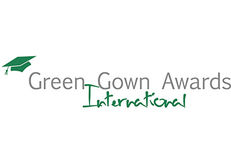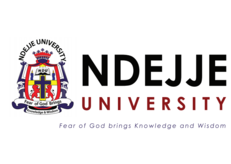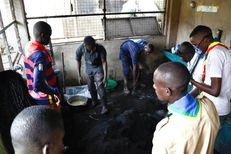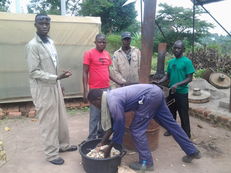Universities and Entrepreneurial Models of Students Engagement in Municipal Bio-Waste Recycling in Uganda
Growing population and urbanization impact on municipal sanitation, water safety, energy access, food security and livelihoods. Given the inadequacy of public financing, for bridging service delivery loops, it was premised that; 1) private resources could replace government resources; 2) private sector could be incentivised participate in service delivery via demonstration of business models. The project focused on recycling municipal bio-waste into briquettes, biocides and fertilizers; via developing capacity of youths in technical, entrepreneurial and managerial operations of bio-waste recycling. This was enabled through; a) training; b) linking education institutions with communities, public and private sector agencies; Factory-scale bio-waste recycling saves trees, reduces respiratory complications and provides organic soil nutrients. This circular economy promotes cost savings, cost recovery and resource recovery across the food, energy, water and eco-system nexus.
Top 3 learnings:
- Our constructive innovations benefited very much from big risking; from thinking outside the box.
- Experimentations that were non-conventional and which first appeared trivial succeeded due to our endurance
- The greatest feedstock to our innovations were small ideas generated by very simple people
What it means to win
“The Award;
1) consolidates our position as a key player in sustainable development solutions initiatives;
2) strengthens networks that our university have created with local (Ugandan) and global partners in the field of Renewable Energy Research and development and;
3) has boosted confidence among our students and staff.”
Frederick Kakembo
Deputy Vice Chancellor
Videos








 Except where otherwise stated, content on this site is
licensed under a Creative Commons Attribution 3.0 License.
Except where otherwise stated, content on this site is
licensed under a Creative Commons Attribution 3.0 License.
